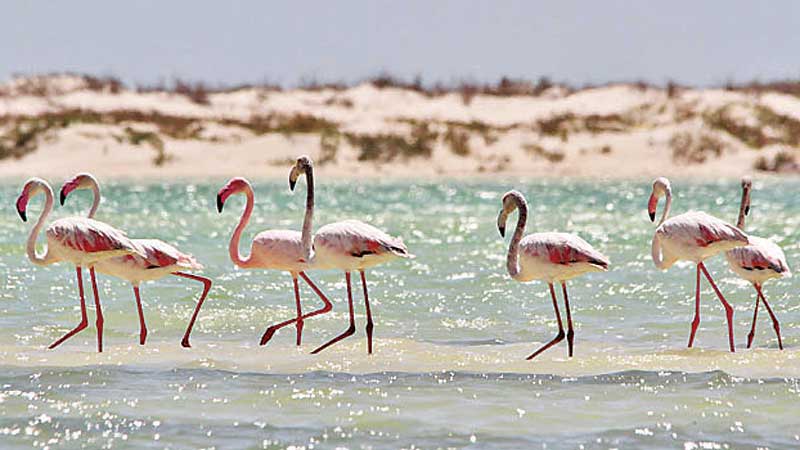


Oman Vision 2040 stated that the Sultanate has made unremitting efforts to ensure that natural resources are protected and used in a safe and sound manner, people are protected from harmful environmental impacts and that environment is effectively managed in a way that supports the prosperity of the society.
For this, the Vision’s top priorities include concern for the environment as a well-established culture with the citizens as well as institutions. It also includes that environmental perspective is considered when making policies, taking decisions in industrial planning and implementation.
The 60th edition of the “Lynx”, the monthly newsletter by the National Field Research Centre for Environmental Conservation, says that the strategic approach of Oman Vision-2040 is based on effective, balanced and resilient ecosystems to protect the environment and sustain its natural resources in support of the national economy.
This future trend is based on the fact that the optimal use and sustainability of natural resources is a necessity to support the economic environment and stimulate it for production. The future strategy in the field of natural resource management will focus on developing non-traditional sources of natural resources, such as the use of various types of renewable energy that contribute to reducing costs on the productive sectors and enhancing their competition. In addition to adopting a transformation approach towards a green economy that enhances the issue of environmental sustainability, contribute to achieving stability, reducing restrictions and pressures on the financial management, and supplying the treasury with financing sources through non-traditional natural sources.
“In the field of natural resource management, achieving a balance between development requirements and environmental sustainability is a national priority. There is also an urgent need for structural reform in water sector, expanding sanitation services and using modern technology to take advantage of wastewater to use it in various fields such as agriculture and others, aiming at increasing and diversification of agricultural production based on modern technology methods. This would lead to favourable levels of food security, as well as gradually starting to manufacture raw materials; to enhance the local added value and build technical capabilities in this field, which also contributes to diversifying sources of income and strengthening the Sultanate economically.
According to “Lynx”, the challenges faced are many, include: limiting the follow-up of environmental conservation to a specific institution, without consideration to the fact that the field of the environment is shared by all other sectors. Also, there is a negative understanding for environmental protection as an obstacle to development. The Sultanate strives to have the “concern for environment” as a firm culture with the citizens and various institutions. In addition to the absence of a national environmental database as a solid infrastructure to support decision-making, policy-making, monitoring, follow-up and evaluation process. The driving forces and pressures affecting the environment in the Sultanate are represented by population growth, economic growth, and energy demand.
The high population and economic growth have exerted severe pressure on the area of cultivable land in the Sultanate.
However, in the field of energy, energy production is totally focused on fossil fuels (oil and gas) . Most of the final use of the energy sector is concentrated in generating electricity and transportation.
In the field of water resources, the Sultanate is considered one of the countries that suffer from scarcity of water resources because it is located in the range of dry areas. Deteriorating groundwater quality is one of the pressures and challenges facing the water resources sector as a result of the high salinity of the groundwater in the coastal parts.
The problem of desertification has also grown in the Sultanate during the past two decades. For the marine environment, it is also exposed to illegal discharging of oils from ships and trans-carriers passing through regional waters, and reach of these pollutants to the beaches. Besides, unmonitored fishing activities leads to the destruction of coral reefs and depletion of fish stocks.
All of these activities cause the death of numbers of rare sea turtles, whales and dolphins. On the same context, the growth of commercial marine fishing has environmental impacts. To address these challenges, the Sultanate has set up a number of legislations, programmes and initiatives, including updating the national plan to combat oil pollution, the national programme for monitoring pollutants in the marine environment, monitoring the development of fish stocks, the mangrove cultivation project, monitoring the water situation, the national strategy for improving natural pastures, developing policies encouraging investment in food production projects, strengthening the air quality monitoring network, and reducing gas emissions depleting the ozone layer.
Zainab al Nassri
@zainabalnasseri
Oman Observer is now on the WhatsApp channel. Click here



